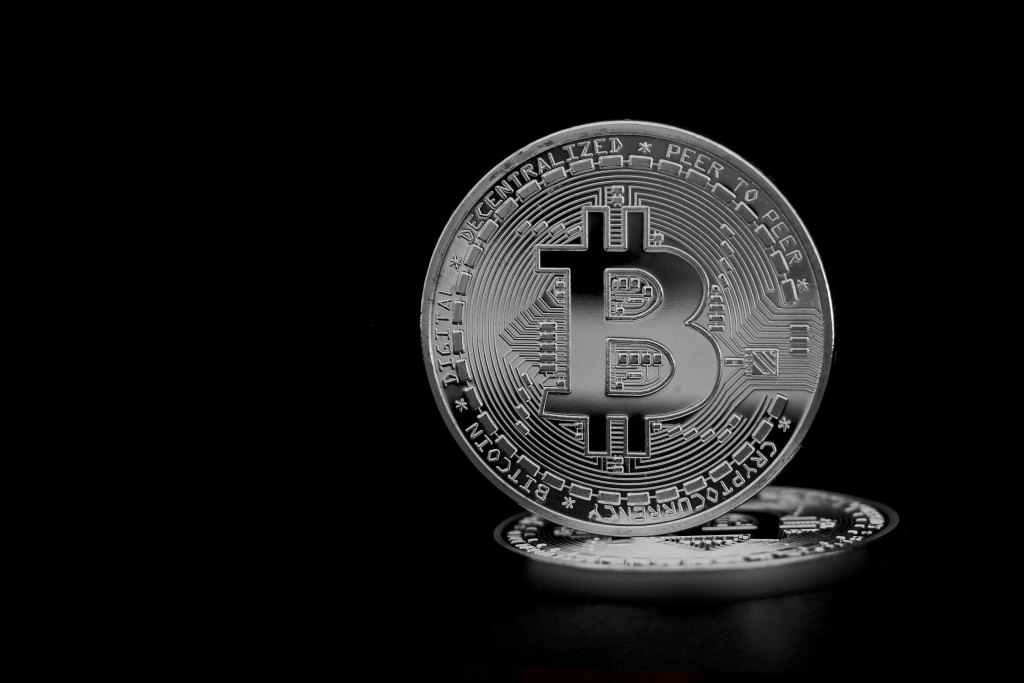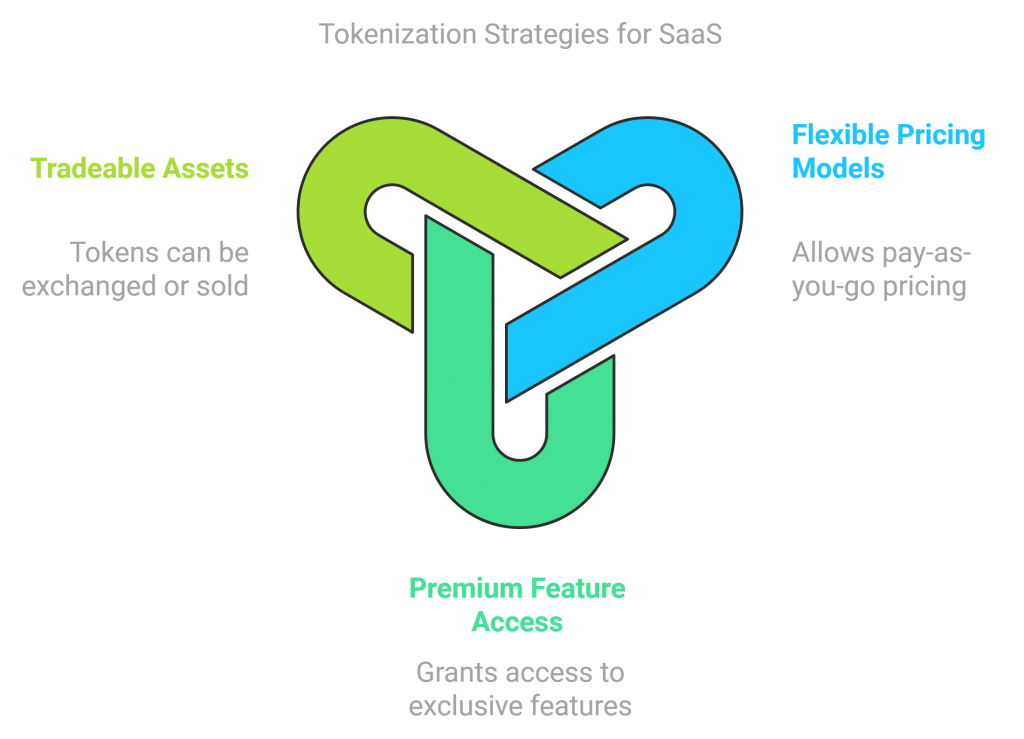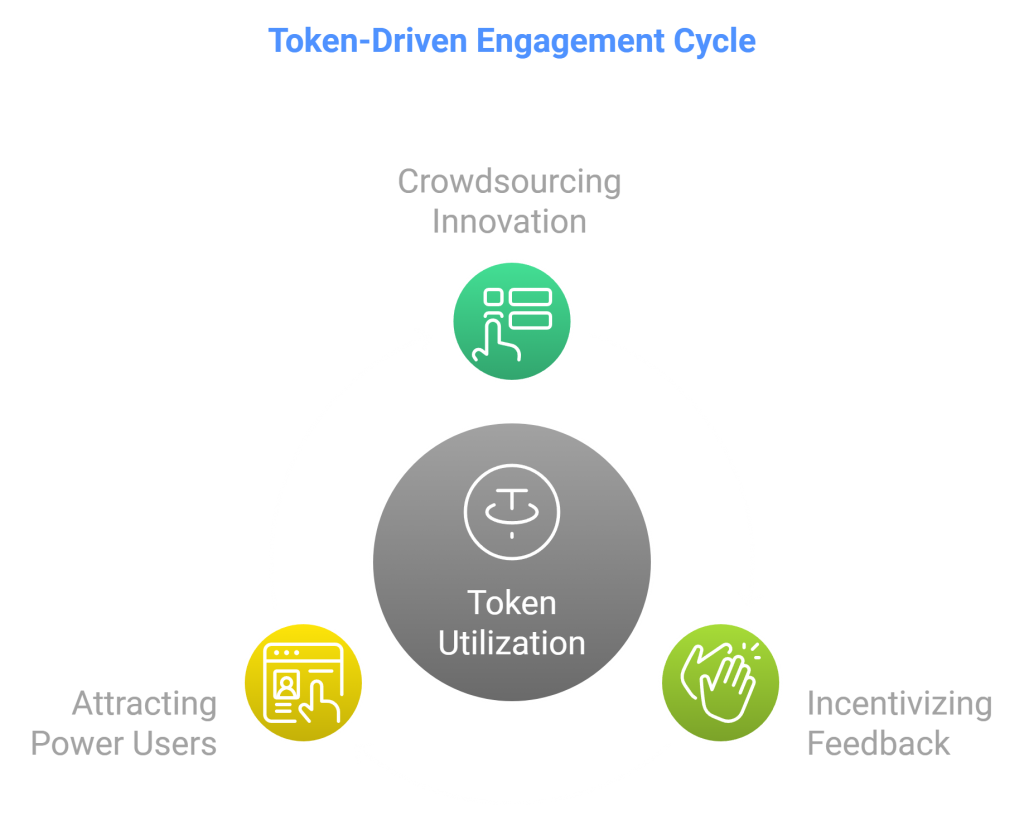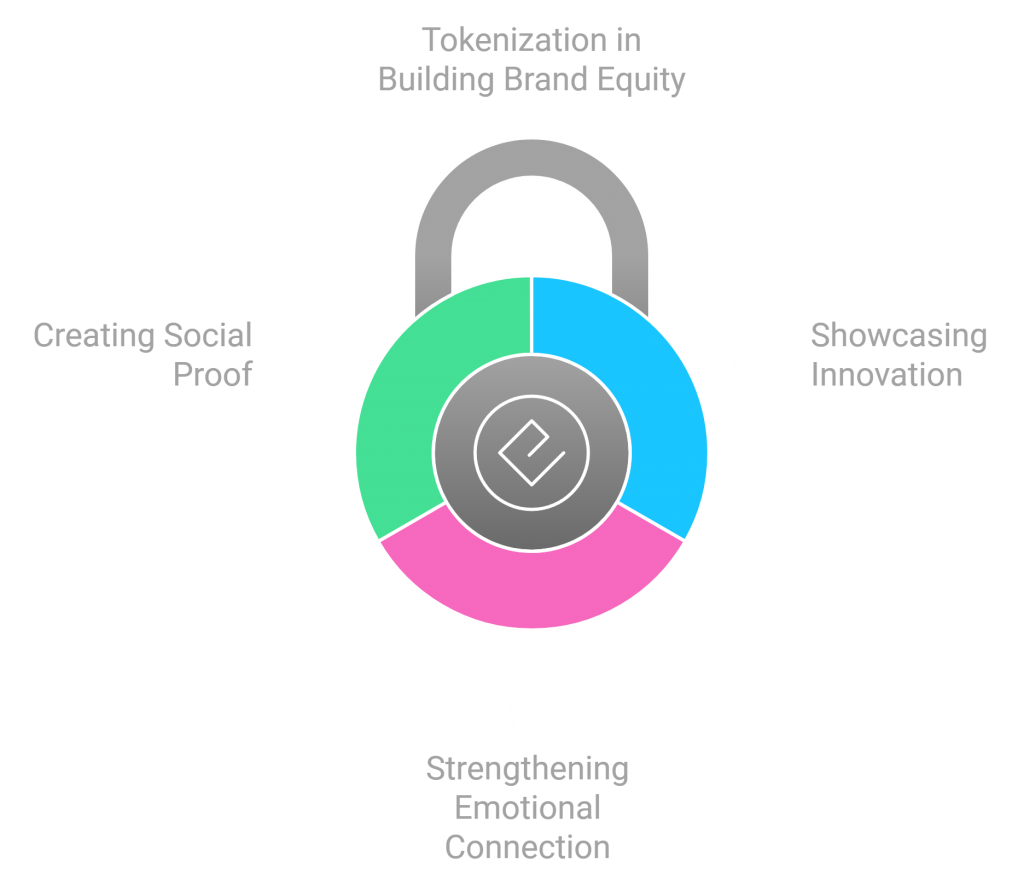Tokenization has emerged as an intriguing possibility for SaaS companies looking to evolve their platforms. Tokens, powered by blockchain, offer new ways to monetize, engage users, and create communities. However, tokenization is no magic wand. It requires planning, technical resources, and a deep understanding of your user base to succeed.

What Is Tokenization in SaaS?
Tokenization involves creating a blockchain-based digital asset that serves specific purposes within your platform. Tokens can act as payment tools, unlock access to features, or even serve as rewards for user engagement. In some cases, they can grant governance rights, allowing users to participate in decisions about the platform’s future.
This concept goes beyond just adding a feature – it’s about rethinking how users interact with your platform. When designed with some thought, tokenization can bring users closer to your product while offering new opportunities for growth.
Why SaaS Companies Are Exploring Tokenization
1. Unlocking Revenue Potential
Tokens give SaaS businesses the freedom to go beyond standard subscription models. For example, instead of charging flat monthly fees, tokens allow for pay-as-you-go pricing or token-based access to premium features. Additionally, tokens can become tradeable assets, providing users and the company with new revenue streams.

2. Increased Engagement
Tokens can reward users for taking actions that benefit the platform, such as referrals, feedback, or reaching milestones. By gamifying the experience, tokens encourage users to stay engaged while creating a sense of achievement.
3. Simplifying Transactions
With tokens, SaaS companies can reduce the reliance on traditional payment processors, which often come with high fees or processing delays. Tokens allow for seamless microtransactions, which is particularly useful for platforms offering individual, bite-sized services.
4. Building a Community
Tokens can also foster a sense of ownership among users. Communities often rally around tokens, finding collective excitement in their endless potential. This is evident even in meme tokens like the famous Peanut meme coin, whose price took off by 3000% within a couple days. It thrives on shared enthusiasm rather than functional utility. SaaS platforms can use tokens to build loyal communities that feel invested in the platform’s success.

Benefits of Tokenization Beyond Revenue
Improving Transparency
Blockchain technology makes certain that all token transactions are visible and verifiable. This transparency builds trust with users, especially in environments where data security and privacy are of utmost importance.
Encouraging Long-Term Loyalty
Tokens can act as digital loyalty points, giving users incentives to stick with your platform. By holding (or even staking) tokens, users are more likely to return and continue engaging with your product, especially if those tokens gain additional value or utility over time.
Expanding Your Ecosystem
Tokens can also incentivize third-party developers and partners to contribute to your platform. Developers might create integrations or plugins in exchange for tokens, expanding your ecosystem and offering users more value.
Customer-Centric Innovation Through Tokenization

Tokens can also act as a tool for crowdsourcing innovation. By allowing users to use tokens to vote on platform updates or feature additions, SaaS companies can align their development roadmap with customer needs. This approach creates a one of a kind collaborative relationship between the platform and its users, ensuring that updates are driven by genuine demand.
Incentivizing Feedback and Testing
Beta testing often lacks engagement, as users see little benefit in providing feedback. Tokens can change that dynamic by rewarding users who participate in testing or report bugs. By gamifying feedback collection, companies can gather more valuable insights while keeping users engaged.
Attracting Power Users
Power users, or highly active customers, can have an outsized impact on your platform’s growth. Token rewards for advanced usage or contributions to the community can strengthen their loyalty and encourage them to act as ambassadors for your platform.

Challenges of Tokenizing Your SaaS Platform
Regulatory Hurdles
Tokens could fall into legal gray areas. Depending on their structure, they could be classified as securities, which brings additional compliance requirements. Navigating this landscape requires expertise, as non-compliance can lead to financial and reputational risks.
Technical Complexity
Creating a token system requires a robust blockchain infrastructure. From security to scalability, the technical demands are high. Without the right team or tools, these challenges could outweigh the benefits.
Market Instability
Tokens with financial value are subject to market dynamics. For example, if your token value drops sharply, it could frustrate users who depend on it for platform access. Stability mechanisms may be needed to avoid alienating your audience.
Educating Users
Many users are unfamiliar with blockchain and tokens, which can make adoption challenging. You’ll need to create resources (tutorials, guides, and customer support) to help users understand how to buy, manage, and use tokens effectively.
The Role of Tokenization in Building Brand Equity

Tokenization can elevate your brand’s perception in the market. Offering a tokenized experience positions your SaaS company as innovative and forward-thinking, which can resonate with early adopters and more tech-savvy audiences.
Showcasing Innovation
When done right, tokenization can highlight your willingness to explore cutting-edge solutions. This can attract new users who are intrigued by platforms offering more than the usual subscription service.
Strengthening Emotional Connection
Tokens have a unique way of creating emotional ties between users and platforms. For instance, platforms that incorporate gamification elements with tokens make users feel rewarded and valued. A well-thought-out token becomes part of your brand identity.
Creating Social Proof
When tokens gain traction and foster an active community, they generate social proof. New users see this excitement and engagement as validation of your platform’s quality and relevance. For example, while Pnut Coin lacks direct utility, its community has helped it stay relevant through shared enthusiasm. SaaS tokens with practical use cases can achieve even stronger results by combining utility with community excitement.
What the Future Holds for Tokenization in SaaS
As blockchain technology evolves, tokenization in SaaS is likely to become more sophisticated. Here’s what the future may hold:
Integration with AI and Machine Learning
Tokens could be tied to AI-driven rewards, offering more personalized incentives based on user behavior. For example, a SaaS company might use tokens to reward users for engaging with new AI tools or features.
Green Tokenization Initiatives
With sustainability becoming a growing concern, companies might explore eco-friendly blockchain networks or offset tokenization’s carbon footprint. Tokens tied to green initiatives could attract environmentally conscious users and differentiate your brand.
Cross-Platform Compatibility
In the future, tokens may become interoperable across platforms. Imagine a token earned on one SaaS platform being usable on another, creating a more connected digital ecosystem. This level of collaboration could redefine how businesses interact with users and with each other.

Balancing the Benefits and Risks
Advantages
- Flexibility in pricing models and user engagement strategies.
- A streamlined, transparent payment system with lower transaction costs.
- Opportunities for community building and loyalty rewards.
Challenges
- Regulatory hurdles that require expert navigation.
- Technical complexity and associated costs.
- Educating users and managing potential resistance to adoption.
Final Thoughts
Tokenization can be a powerful tool for SaaS companies willing to innovate. It offers a fresh way to monetize, build engagement, and connect with users on a deeper level. However, it’s not without challenges – regulations, technical demands, and user adoption all require careful planning.
Success stories of meme coins remind us that tokens can thrive even without extensive utility, provided they resonate with their audience. For SaaS platforms, blending practical functionality with emotional connection can turn tokenization into a key driver of growth. Thoughtful execution, backed by clear goals and a user-first mindset, will determine whether tokens become a defining feature of your business’s future.























Leave a comment!